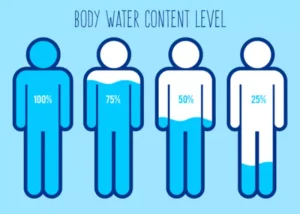
Heavy drinkers may develop an addiction to alcohol that requires professional treatment. This explains why individuals who frequently consume substantial amounts of alcohol may wake up experiencing tremors and feel the need to drink to regain stability. Typically, tremors reach their peak between 24 to 78 hours after the last drink, but they may persist for several weeks or even longer. Lifestyle changes such as regular exercise, balanced nutrition, stress management, and avoiding alcohol triggers can support nerve health and minimize the occurrence of alcoholic shakes. To manage a successful tapering, the alcoholic may need to rely on friends or family to help monitor the situation. They may limit themselves to a certain number of drinks per hour and will need a dedicated monitor to keep tabs.
Alcohol-Related Brain Damage Can Lead to Shaking
- To overcome the sedative effect of alcohol, the brain responds by increasing nerve activity to keep the body in a heightened state of alertness.
- Even less often, people see, feel, smell, or even taste things that aren’t real.
- But over time, excessive alcohol use leads to a decrease in natural GABA activity.
- While studies have shown baclofen may be effective in reducing symptoms of alcohol withdrawal, including tremors, it is an “off-label” use of the drug at this time.
- Thomas has been in the Santa Cruz area his whole life and is proud to serve his community in fighting addiction one client at a time.
This specific type of trembling is most noticeable when someone makes a purposeful move towards an item or object. While hepatic encephalopathy can also lead to coma and death, the condition usually resolves with treatment.

Medical Reviewer

That craving may be particularly exacerbated by the shakes, which is a clear physical manifestation of withdrawal. Not all of the side effects are guaranteed, and some may be more severe than others. If you experience any of them, however, you should also seek medical attention right away.

Start your recovery now
There are a whole range of symptoms, including both physical and psychological issues. These groups can support individuals during recovery from alcohol abuse. While alcohol shakes are not life threatening, delirium tremens may also cause seizures and may lead to death without appropriate treatment.
- During this time, your doctor can help you reduce withdrawal tremors with medications.
- Alcohol-related brain damage (ARBD) or brain injury (ARBI) are brain disorders caused by long-term, heavy alcohol consumption.They usually affect people between the ages of 40 and 50.
- Elevate’s holistic drug rehab center in California can be your first step toward recovery and a tremor-free life.
- In rare situations, people with very high CNS activity may need general anesthesia to fully sedate them and avoid the most dangerous symptoms of DTs.
Getting help and support
- Your sympathetic nervous system deals with responses to stress, which includes things like sweating, increased heart rate, and — you guessed it — shakes or tremors.
- The client’s repeatedly express how amazed they are at Carrie’s listening skills and non-judgemental attitude, which allows them to develop trust, honesty and openness to discuss their SUD.
- One drink is equal to 14 grams (g.) of pure alcohol, which can take many different forms because some forms have a higher concentration of alcohol than others.
- Ask your doctor if either benzodiazepines or baclofen may be appropriate to help manage withdrawal symptoms.
- In severe cases, alcohol withdrawal can lead to a condition called delirium tremens, which is an extreme form of alcohol withdrawal.
During this time, your doctor can help you reduce withdrawal tremors with medications. Anxiety and stress can make tremors worse, so managing your stress levels during withdrawal and recovery is also important. While you’ll typically notice this shaky feeling in the hands, it can also affect the arms, legs, and even the whole body. Shakes from alcohol abuse are often one of the many signs of alcoholism or alcohol dependence, and they can sometimes lead to more serious alcohol withdrawal symptoms. Once you’ve decided to stop drinking alcohol, it’s important to meet with your doctor.
What are Alcohol Shakes and Tremors?
Carrie counsels clients with abuse trauma, helps them rebuild their self-worth and assists them in obtaining healthy coping skills. Carrie’s strengths include trauma informed care counseling, genuine compassion for all residents. The client’s repeatedly express how amazed they are at Carrie’s listening skills and non-judgemental attitude, which allows them to develop trust, honesty alcoholic shakes and openness to discuss their SUD. Carrie’s focus is on leading the client to a future where they feel confident and have the ability to make the necessary changes in their life.
